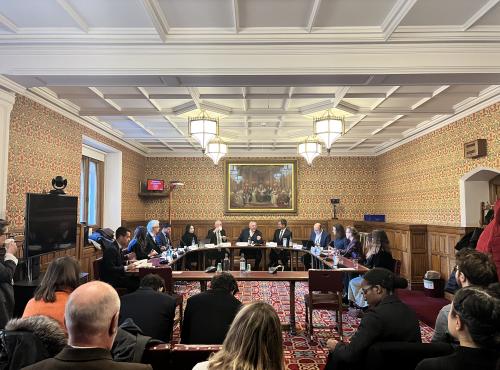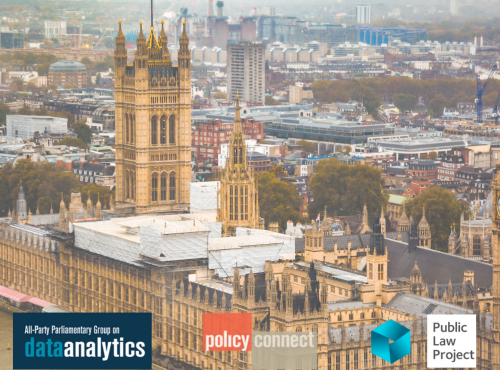AI and Ethics: Evidence Session 3
On 22nd March 2023 Policy Connect, through the All-Party Parliamentary Group on Data Analytics (APGDA), held the last of three evidence gathering roundtables on the highly topical subject of Artificial Intelligence (AI) and Ethics.
The evidence-gathering is to inform an inquiry aiming to identify practical governance & regulatory measures and tools to support the ethical development of artificial intelligence in the UK for the benefit of citizens and thereby businesses.
The event was chaired by Daniel Zeichner MP, Chair of the APGDA. It was held under Chatham House rules. Introductory remarks were made by Lord Tim Clement-Jones (House of Lords), Penny Jones (Zurich Insurance), and Tom Moule (Jisc). Participants included a range of stakeholders across industry, academia and the third sector, and from government.
The group discussed how AI has layers of definition depending on the purpose and outcomes for people; this needs to be taken into account in the design of regulation. There was general consensus that industry self-regulation is not sufficient as the harms – when things go wrong – are experienced by the public not the developer of the algorithm. To achieve constructive friction in the development process and to protect individuals the Government has a role to play and there must be full involvement of the public or, at minimum, their proxies.
Horizontal versus sector-based regulation is a false dichotomy, both are necessary at different levels of the regulatory framework. The roles of existing regulators need to be very clearly defined to help working better together, and so as to identify gaps in functions. Regulators need strong enforcement teeth but also to support organisations to develop and introduce good AI – in both the private and public sectors. Without clear and simple guidance from regulators on how to stay legal and ethical, many service providers will be too busy and nervous to draw on AI as a trusted tool to augment their roles.
One of the roles of government should be to support the development and certification of an AI ethics advisory skills pool to ensure that organisations – private and public - get the help their need from trusted advisers.





